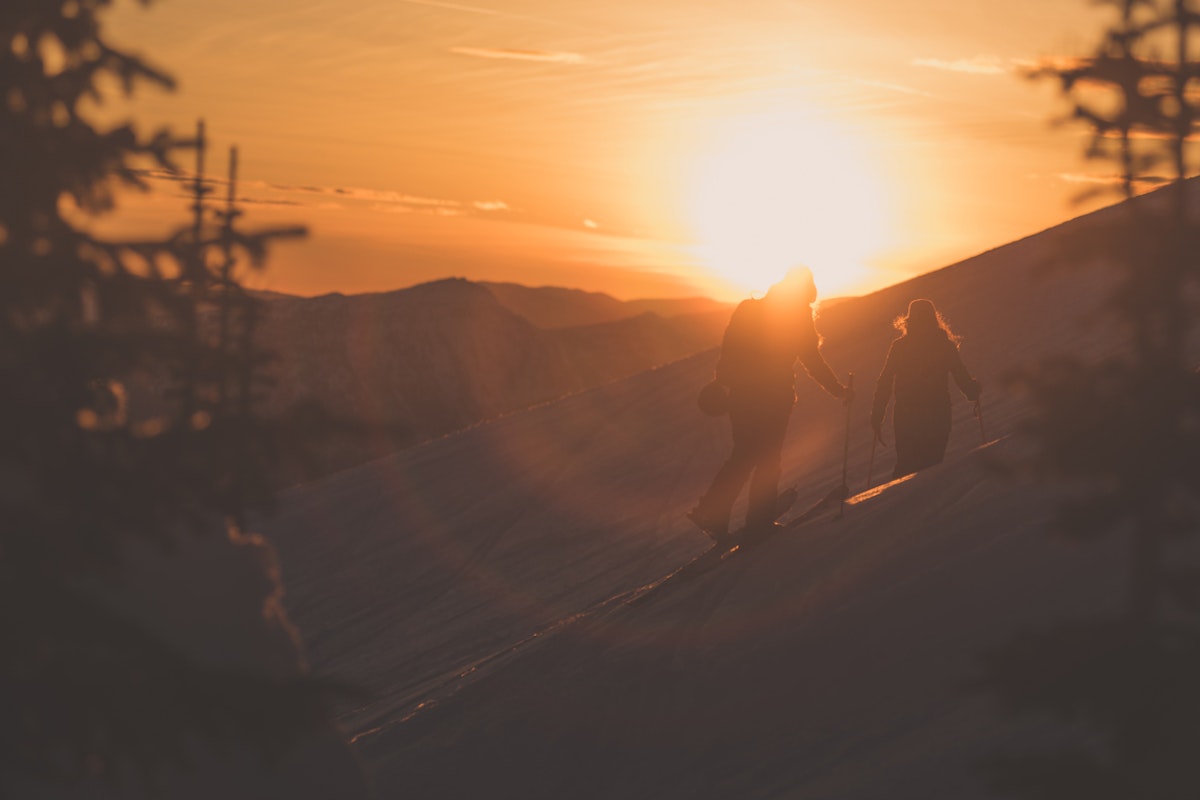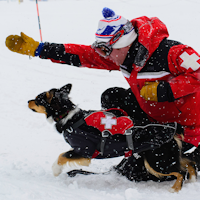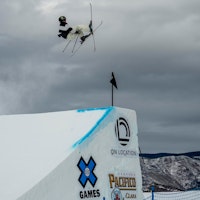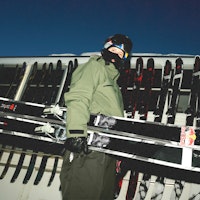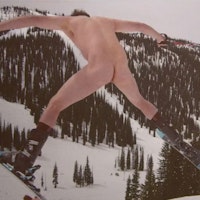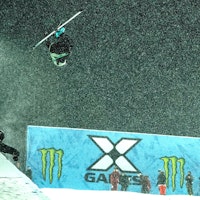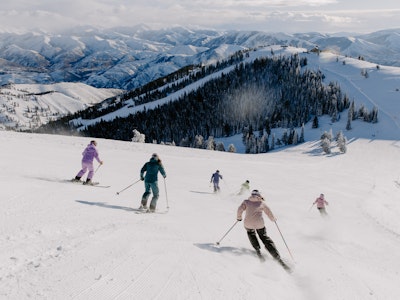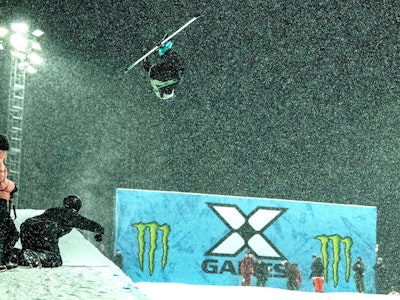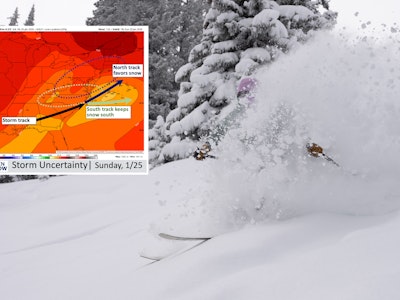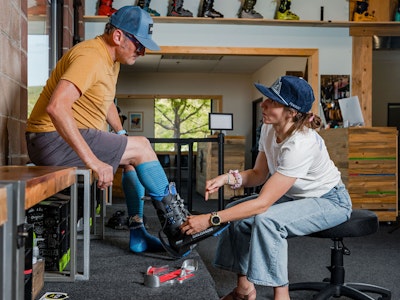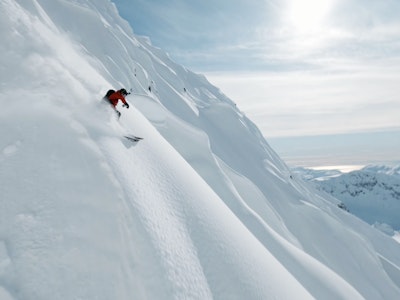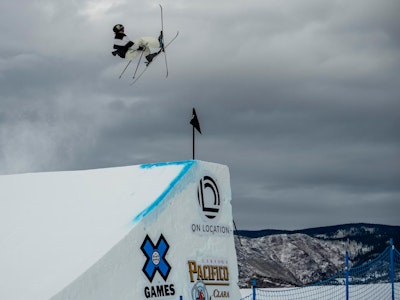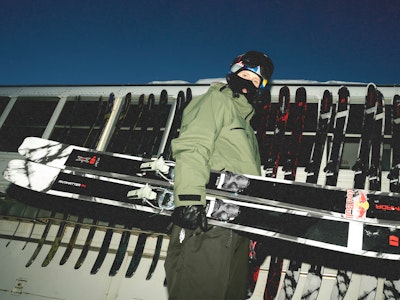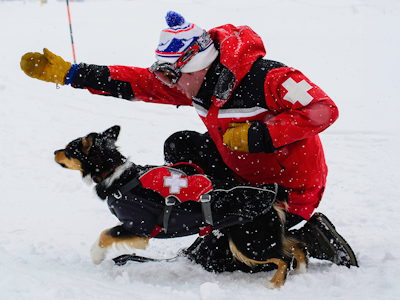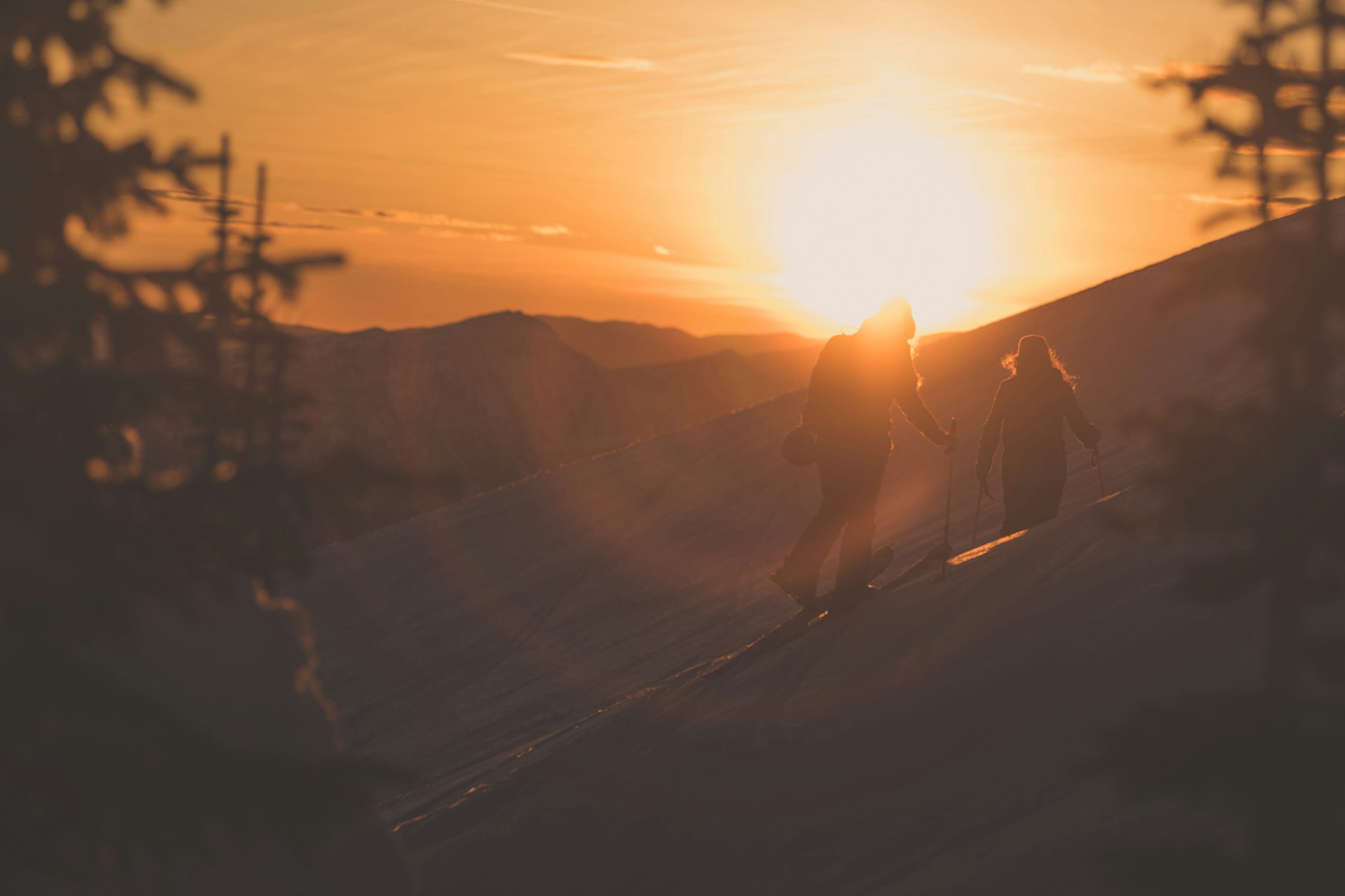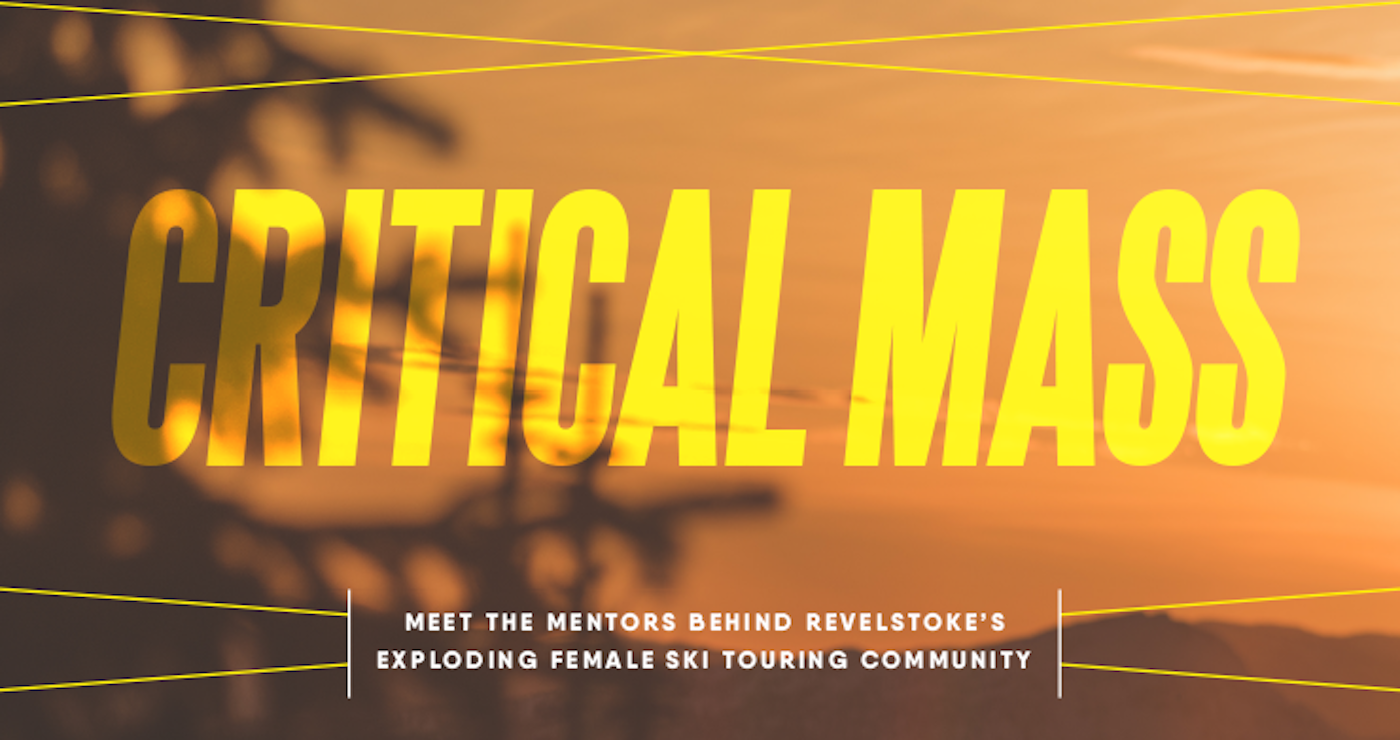
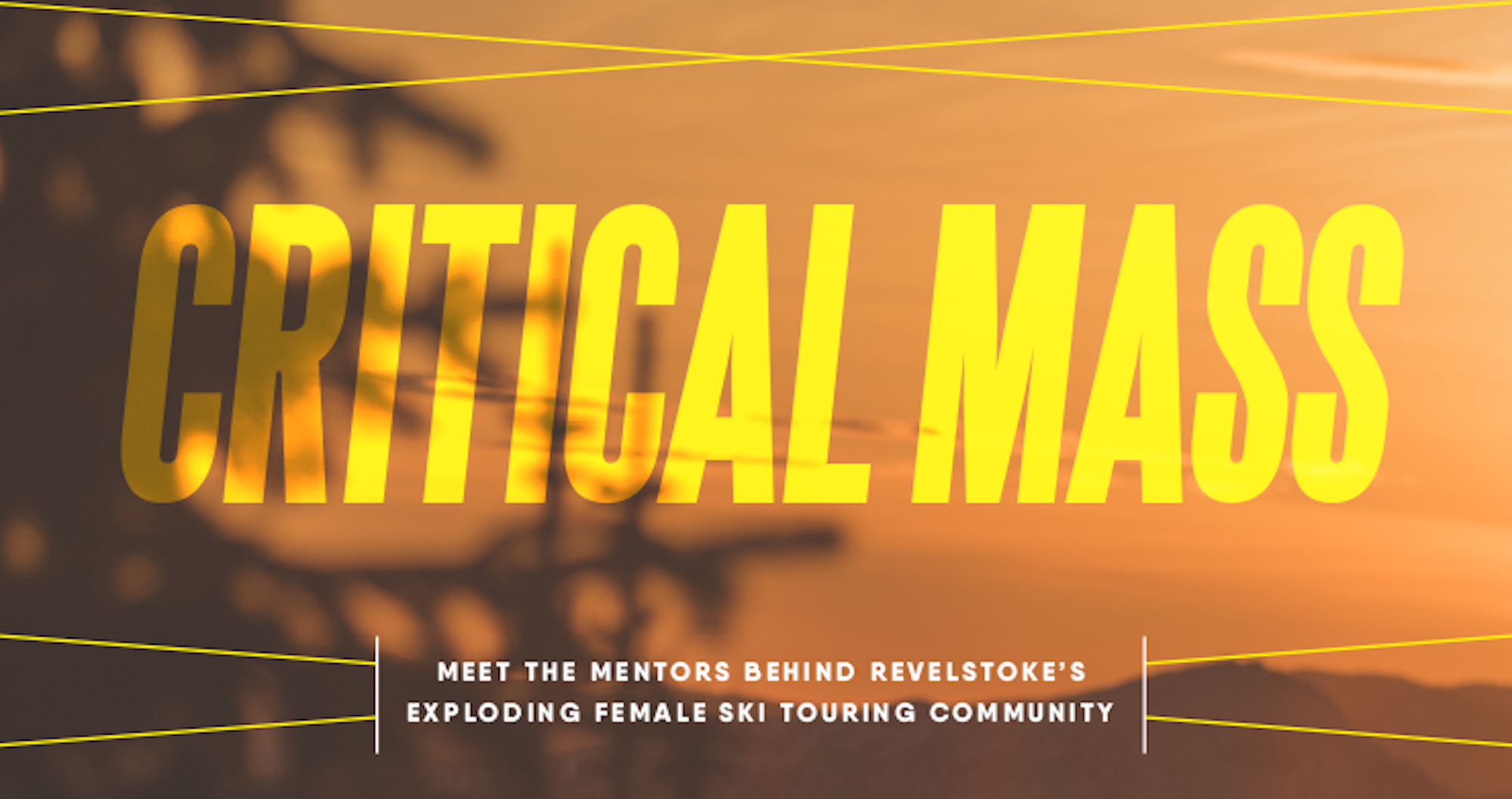
WORDS ■ Cassidy Randall // PHOTOS ■ Agathe Bernard
I’ve lived in my share of mountain towns across the Western U.S. and I’ve always struggled to find consistent female ski touring partners. And seeing an all-female party in the backcountry? That’s like spotting a unicorn.
Until I moved to Revelstoke, British Columbia.
According to Snowsports Industries America’s (SIA) 2016 Participant Study, 25 percent of the 900,000 people skiing in backcountry terrain were female. Although the exact number of women touring around Revelstoke is difficult to pinpoint due to lack of recorded data, experts and veterans agree that the percentage here is far higher than that.
“It’s not unusual to have a group of four or five women out skiing together, and it’s not as if they planned a girls’ day — it’s just who you’re skiing with,” observes Kate Devine, a powerhouse of Revelstoke’s prolific backcountry scene. Devine is an ACMG certified ski guide and the force behind Canada’s only SheJumps program: the Alpine Finishing School, based out of her family’s Selkirk Lodge, provides female backcountry skiers the opportunity to develop ski mountaineering skills like glacier travel, crevasse rescue and navigation. “In a lot of other mountain towns, it’s more like a token woman in backcountry groups,” Devine adds.
“I would say I’ve never seen so many talented women skiers as in the mountains around here. Epically so, in fact,” agrees Diny Harrison, the first Canadian woman to become an internationally certified mountain guide. Now based in Revelstoke, Harrison’s skied and guided all over the world, from Switzerland, Austria and France to Argentina, lending considerable street cred to her anecdotal observations.
This small town is unquestionably a skier magnet, first famous as a heli-skiing mecca with drool-worthy big-mountain terrain and a legendary snowpack and later for Revelstoke Mountain Resort’s extreme vertical (the most in North America, at 5,620 feet). But it’s more than just a perfect storm of dreamy conditions that’s created the robust female ski touring scene: it’s a critical mass of women mentors concentrated in Revelstoke, collectively exercising an experiment in shine theory for big-mountain skiing.
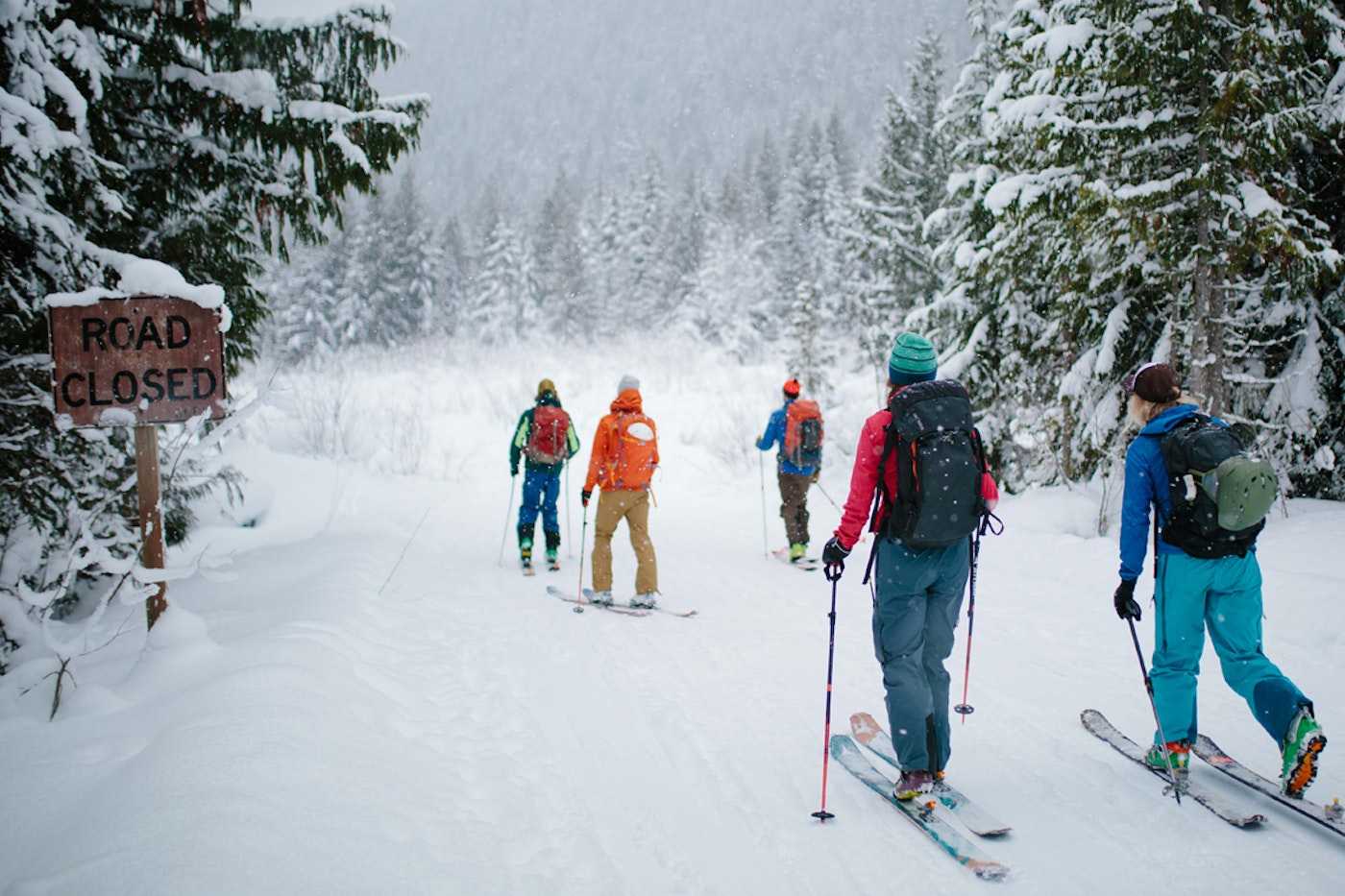
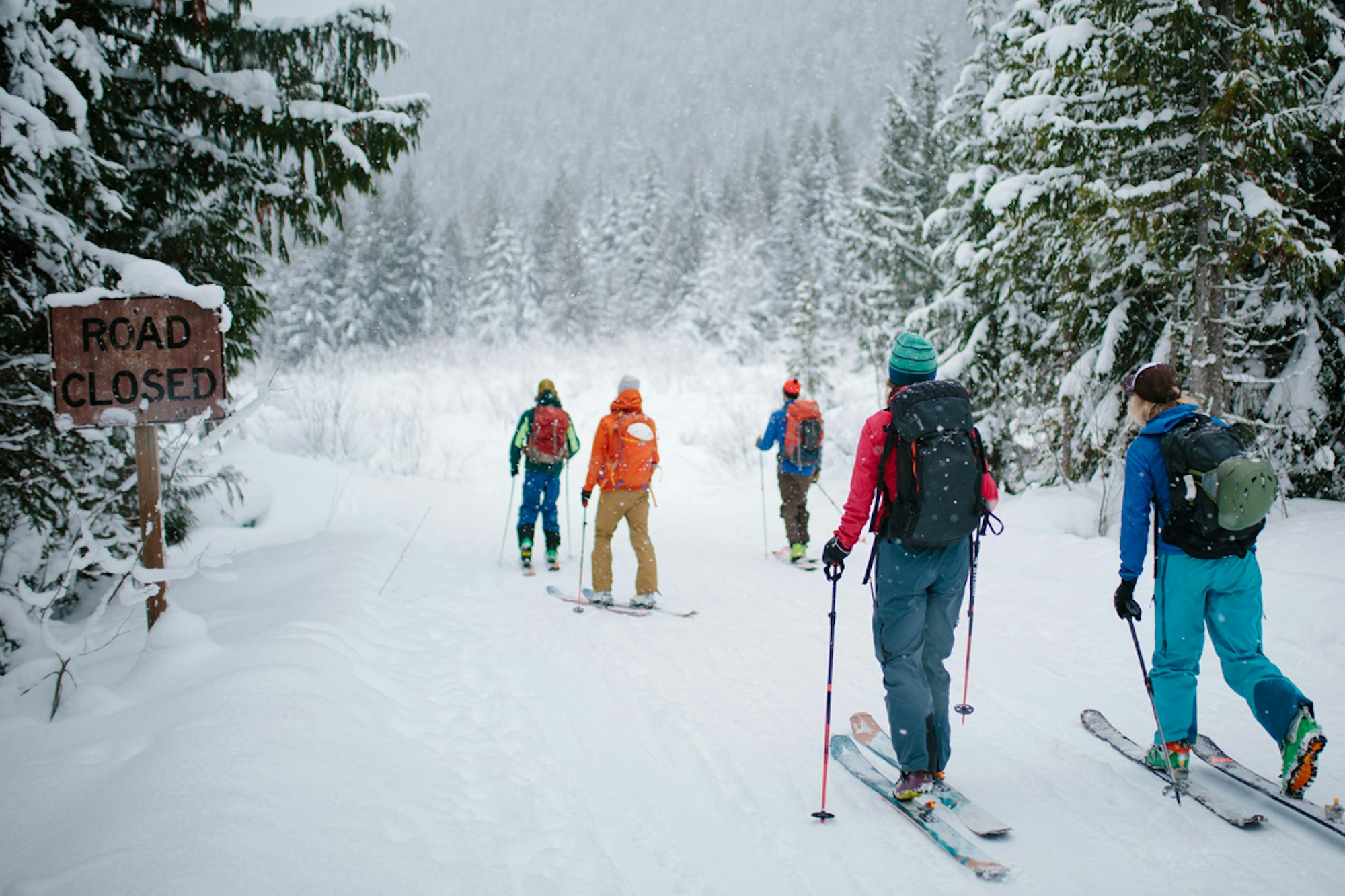
Shine theory was popularized by Ann Friedman and Aminatou Sow, hosts of the podcast Call Your Girlfriend, which analyzes the latest in politics and pop culture. It states that instead of female colleagues viewing each other as rivals competing for success, career advancement or recognition, supporting each other and teaming up can ultimately elevate an entire segment of women. The concept was made famous by a group of female aids in the Obama administration who practiced shine theory to successfully bring more women into an overwhelmingly-male cabinet.
The women mentors in the Revelstoke ski industry have cultivated a shine theory-esque attitude characterized by shared traits like extreme approachability and a belief that mentorship is a two-way street. As a result, they’ve built one of the strongest communities of female skiers that this historically male-dominated sport has ever seen.
Hard numbers back up the anecdotes on the unique critical mass of women backcountry professionals in Revelstoke. Out of more than 500 ski-trained certified guides in the Association of Canadian Mountain Guides (ACMG), 43 are female and spread fairly evenly throughout the West Coast, Kootenays, Bow Valley and other areas of interior B.C. But the concentration in Revelstoke is by far the highest, with 30 percent of ACMG’s female ski and mountain guides based here; and for a small town of 6,700 people, that’s an exceptional number of trained women experts per capita to share knowledge and experience.
Comparative numbers in the U.S. are hard to come by, with most guides keeping P.O. boxes and traveling to different locations for seasonal guiding opportunities. But with similar ratios to Canada (in the AMGA, 8 percent of ski guides and 6 percent of alpine guides are female) and far more powder meccas to spread out to from the Tetons, to the Wasatch, Sierra, Cascades and everything in between, it’s hard to imagine a similar concentration like that which permeates Revelstoke—and certainly no such discussion has passed through the skiing industry grapevine.
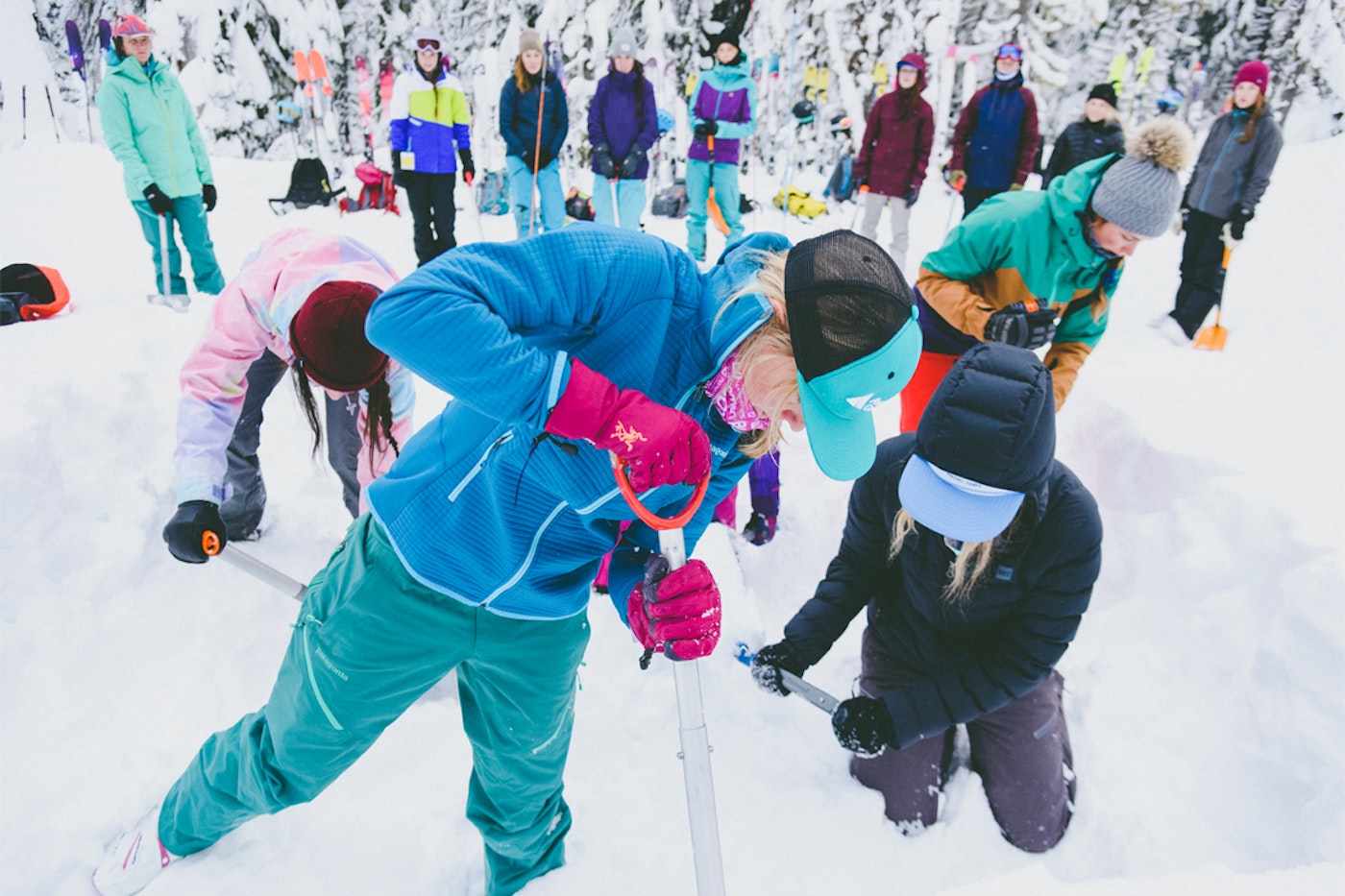
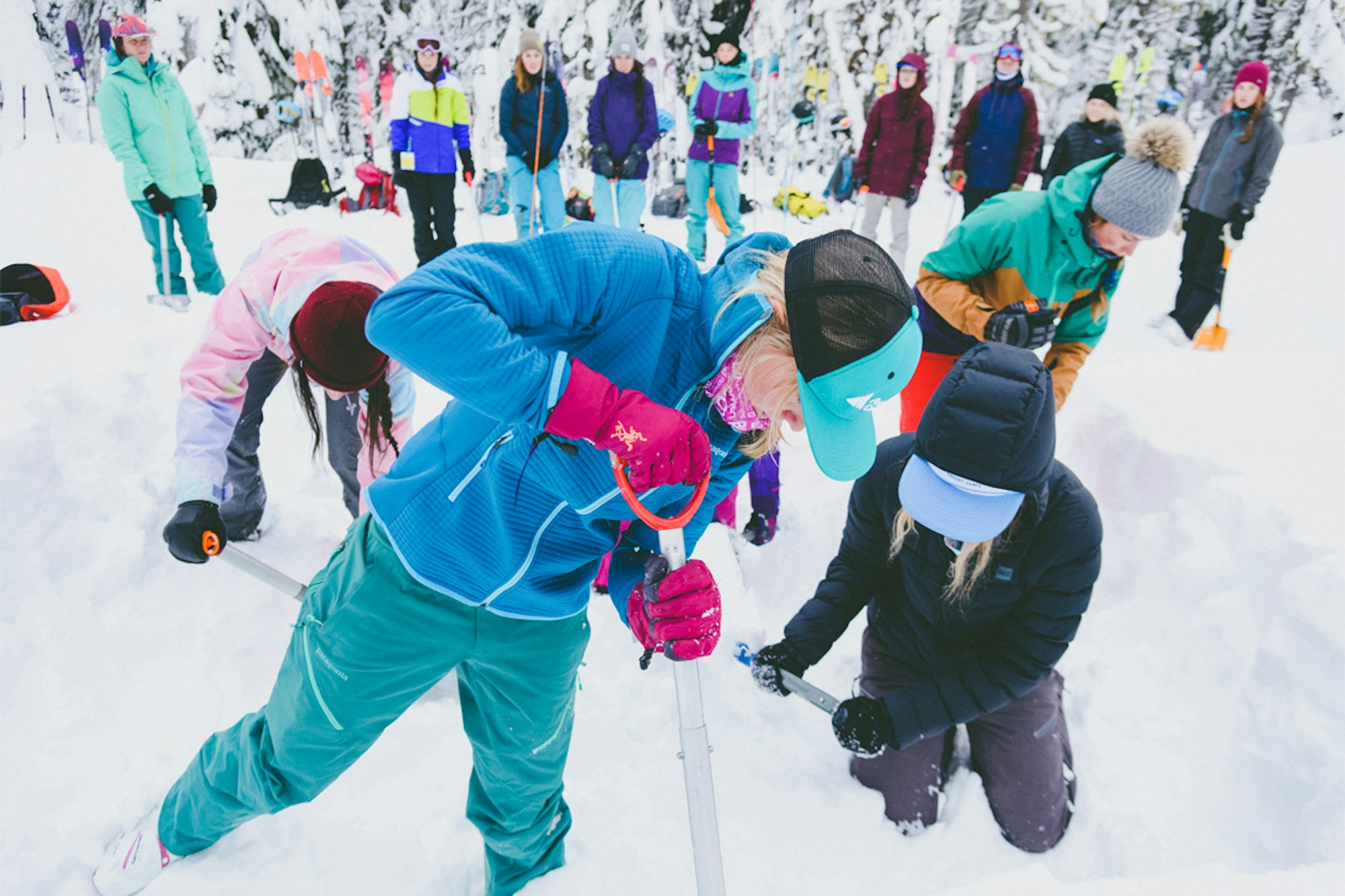
“The Revelstoke community and professional women there who are guiding, avalanche forecasting and working in the backcountry are unique,” said Lind- say Andersen, a long-time ACMG certified ski guide and CMH heli-ski guide based out of Banff. “There’s a crew of very strong women who are skiing every day and touring around there that doesn’t exist elsewhere in the Rockies.”
Many credit Leah Evans and her Girls Do Ski (GDS) program as the genesis point. With small-group classes both on-resort and in the backcountry, GDS seeks to provide a supportive community for like-minded women skiers of all skill levels. “The women’s backcountry scene here started out pretty small. When Leah moved to Revelstoke, she brought together this amazing group of women skiers with her movement,” says Izzy Lynch, pro skier, former big-mountain competitor on the Freeride World Tour Circuit, and one of the coaches on the stacked GDS instructor team.
Evans, a pro skier who’s been featured in A-list skiing films like Jumbo Wild, Pretty Faces and Into the Mind, founded GDS ten years ago at the age of 19. “I always just wanted to see the community grow. By bringing other female skiers up, you help raise the entire platform,” she says.
GDS isn’t unique as a women-specific backcountry clinic; these are popping up across the West. There’s a saturation in Colorado alone, including Vail’s Her Turn and Women’s Ultimate 4 Lessons, Aspen’s Leave the Boys Behind and Ouray’s Chicks Climbing and Skiing. Major programs like Keen’s Rippin Chix and SheJumps run clinics in mountain towns all over. But what makes GDS stand out is the unique style it employs, which is central to feeding Revelstoke’s sizeable women’s touring community.
“Leah is amazing in that she captures the feeling of female skiing and what’s unique about it: the psychological side, the emotional side and the physical side,” Lynch points out.
Lynch is referring to some commonly-observed barriers to entry for women when it comes to ski touring: a lack of confidence in skills and subsequent lack of confidence in decision-making in big-mountain environments; fears of not being able to keep up and holding back a group; and the fact that women learn differently, tending to benefit from supportive rather than competitive atmospheres.
“When you’re learning and teaching, it’s good to be in an open and carefree environment,” says Christina Lustenberger (widely known as Lusti), a pro skier and ACMG certified ski guide who leads the GDS backcountry clinics. “As the guide in that environment, it’s so important not to be intimidating, to convey that you’re human and your students can ask you anything.”
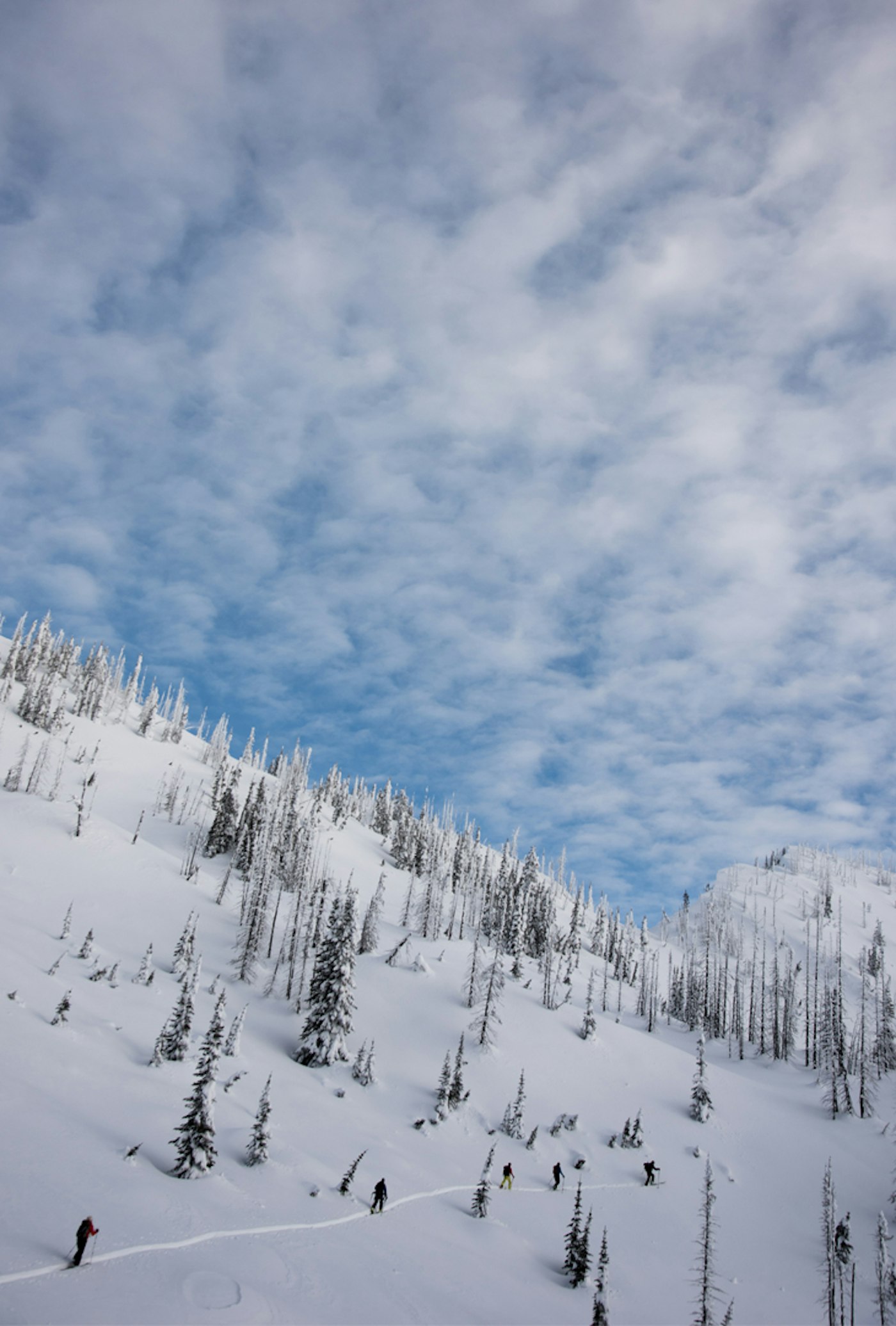
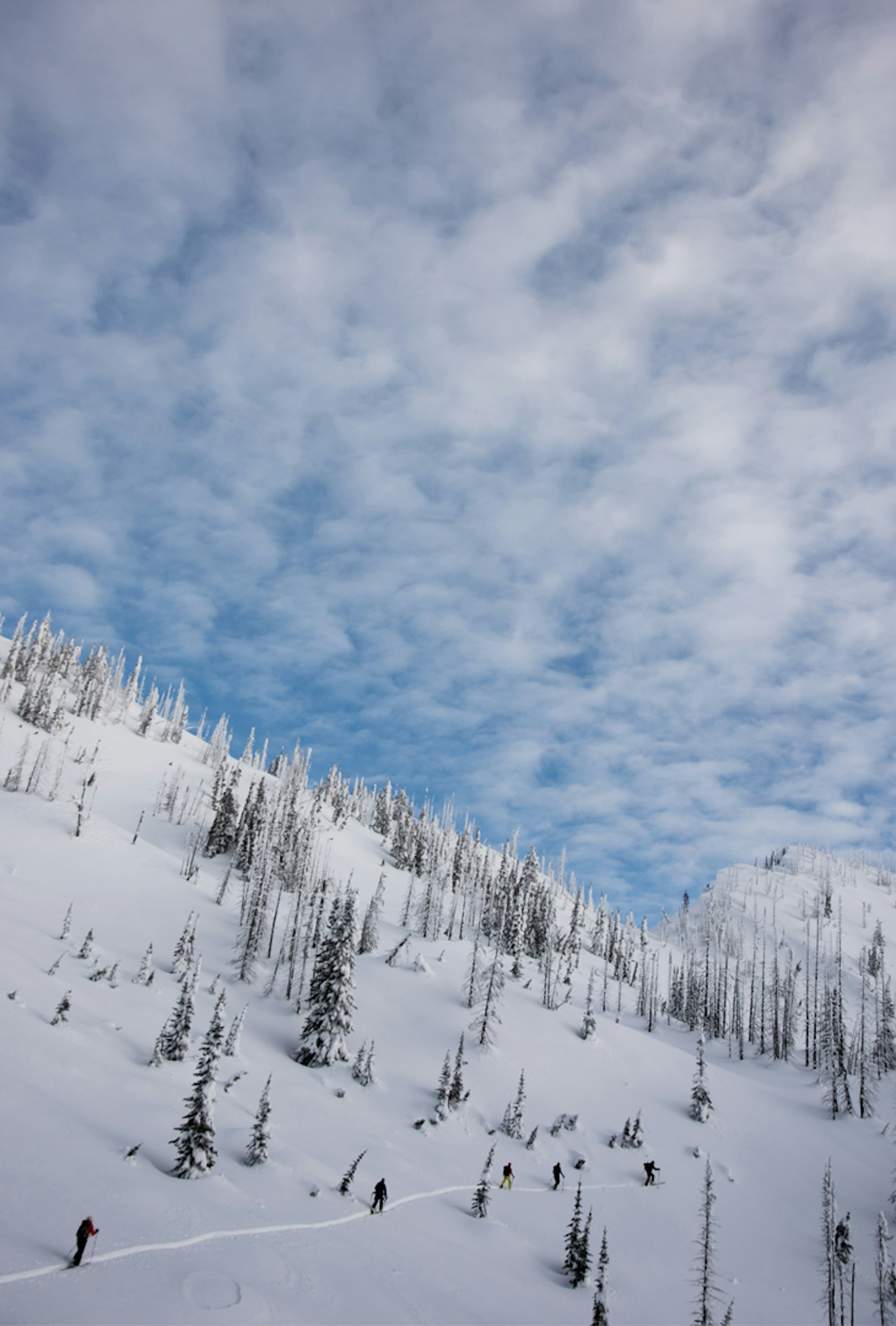
As a former World Cup racer known for pushing limits in the backcountry and massive first descents like her line down Consternation Chute in the Selkirks last spring, Lusti might not actually be human. But for an average skier to have access to an athlete of her caliber, and to feel like she’s approachable, is a classic example of the secret sauce fueling the Revelstoke ski scene. “Christina’s doing something unique. She’s just slaying these big lines, and she’s totally understated,” says Andersen. “There’s no hierarchy feel; she’s just like any one of us.”
As a sponsored athlete with Arc’Teryx alongside Lynch, Lusti’s achievements are showcased on an exponentially larger scale: when female skiers all over the world can watch a woman crush steep lines and claim first descents through the exposure a major outdoor brand offers, it adds significant depth to the shine theory experiment unfolding in this tiny B.C. town.
“Working with women who inspire and enable is one of our biggest priorities,” says John Irvine, manager of Global Community Marketing with Arc’Teryx. “In other words, we partner with women who are inspiring an evolution in the sport, and Christina and Izzy embody that.”
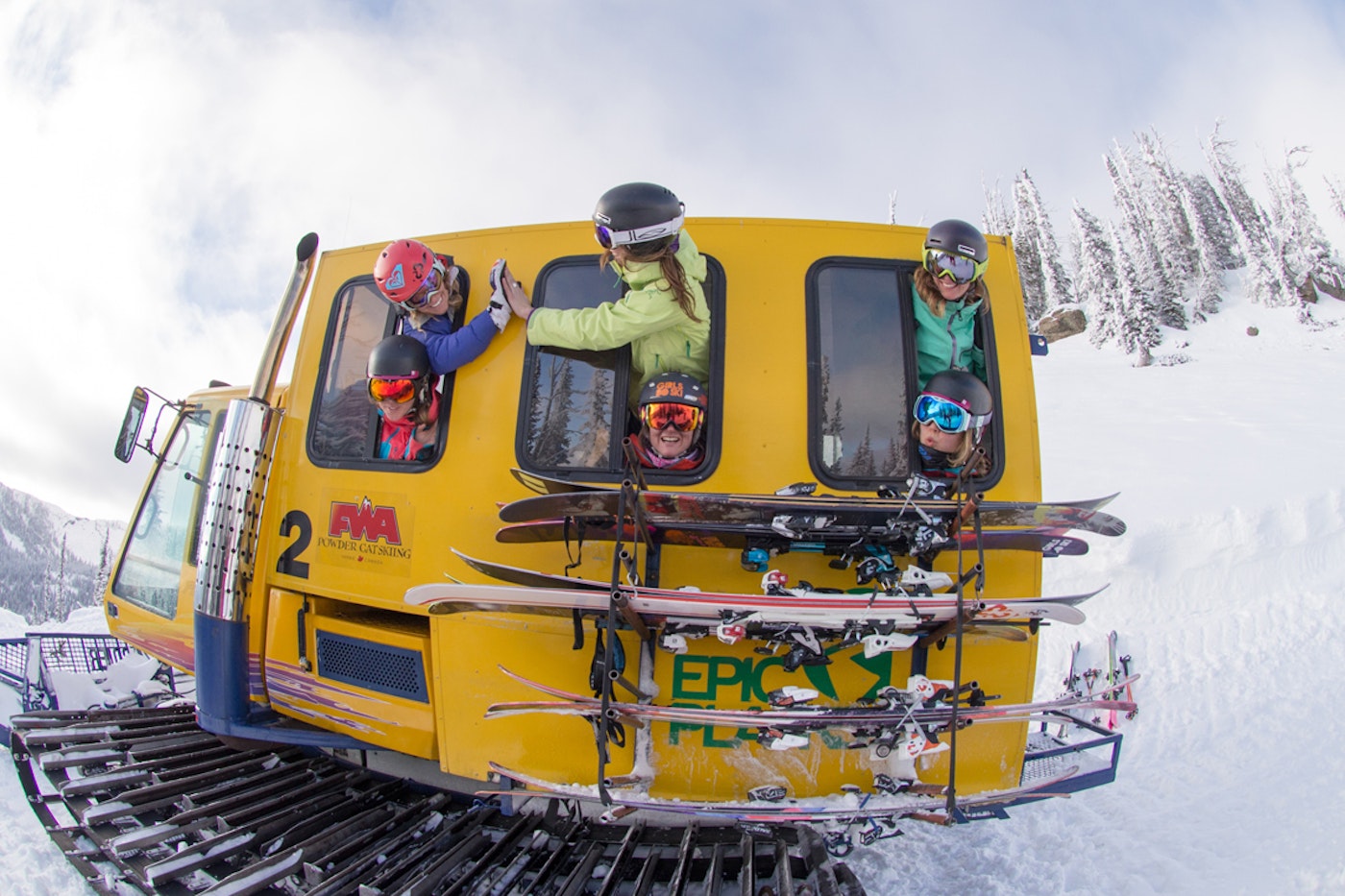
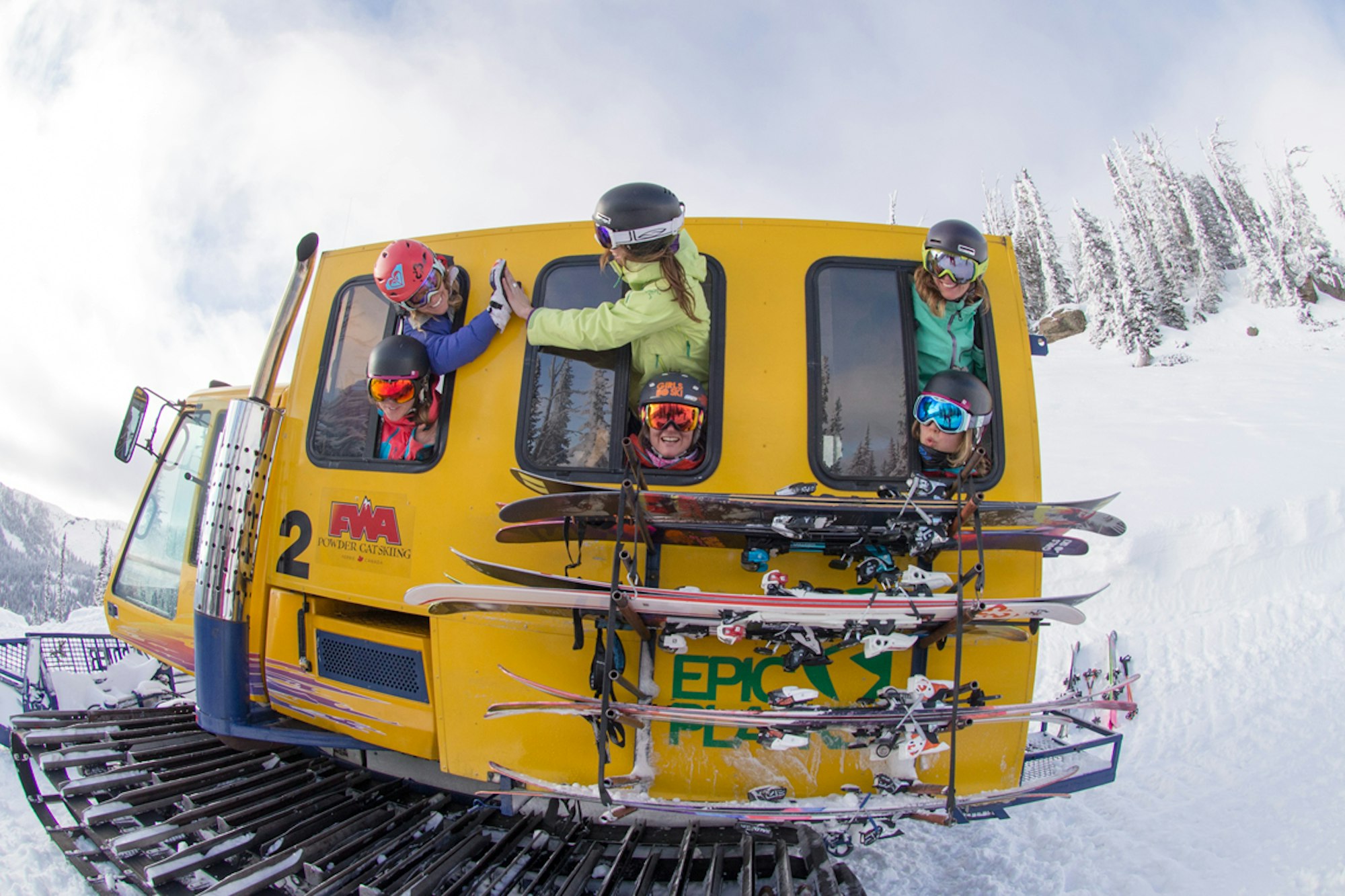
Revelstoke is clearly on the leading edge of that evolution—and according to Lusti and others, part of the driver may be a revolutionary lack of regard for gender in favor of skill. “In any job, it’s important that we’re all people, and it’s not that there’s strength in just one gender,” she observes. “I can ‘send it’ as hard with a bunch of girlfriends as I can with guys.”
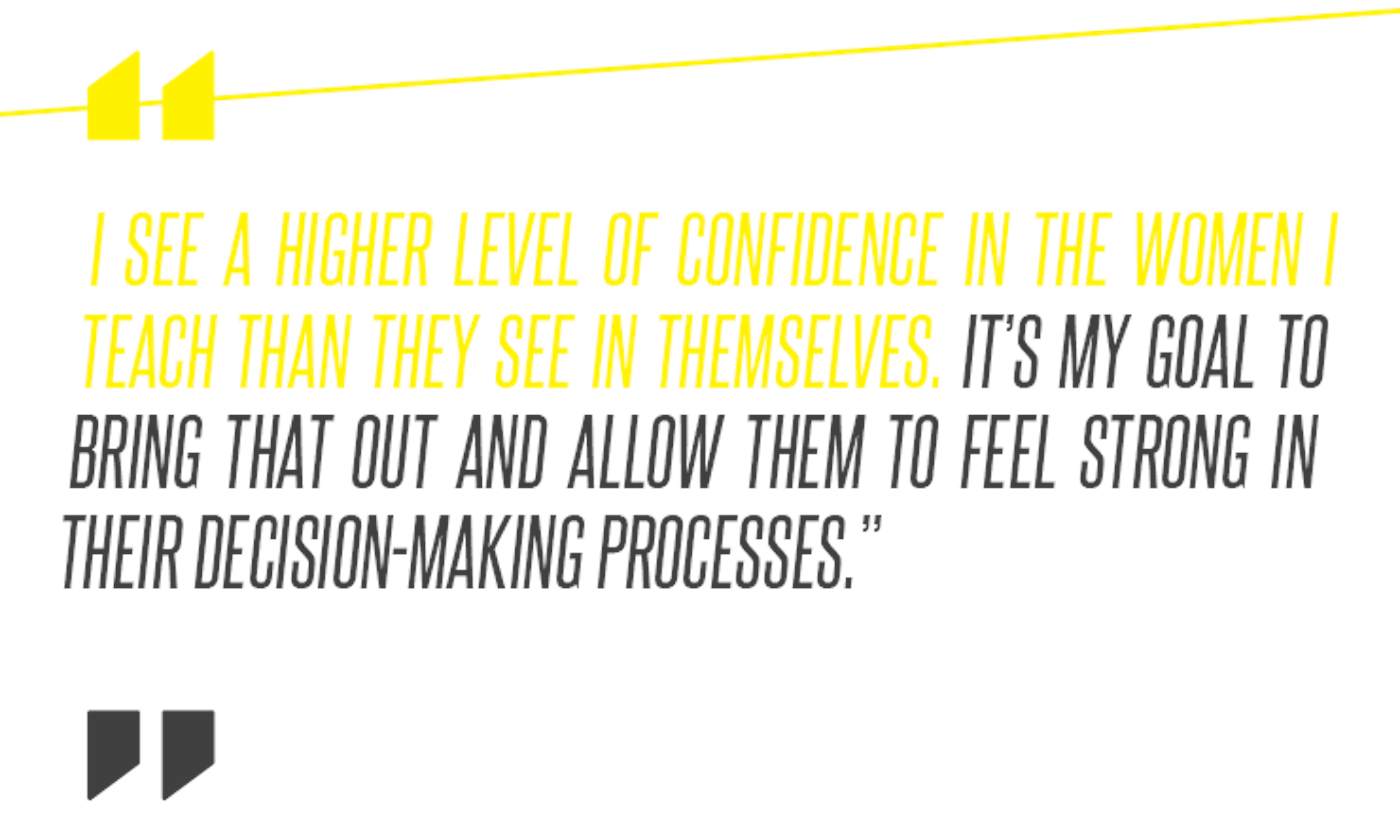
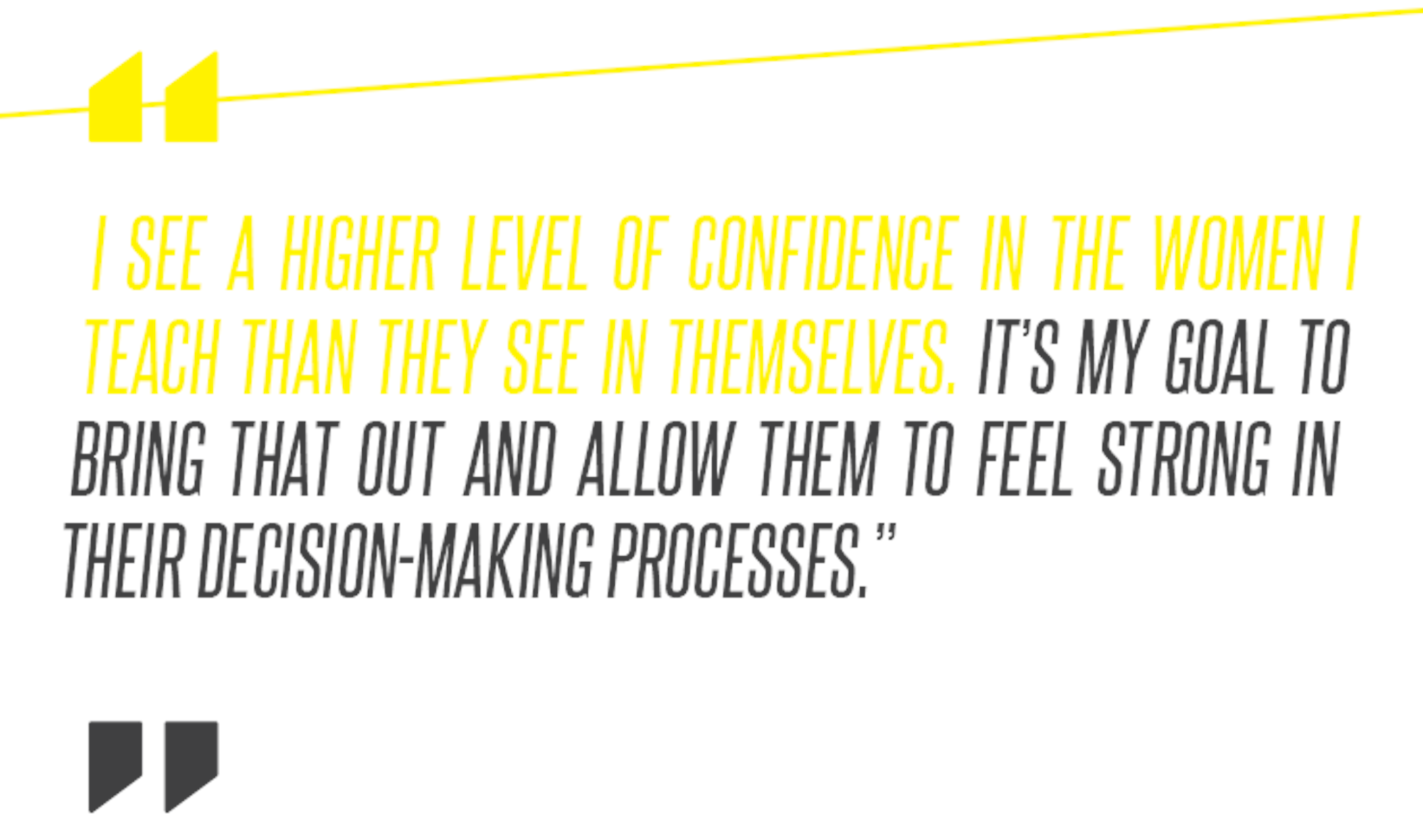
Revelstoke-based Canadian Powder Guiding (CAPOW) founder, Marty Shaffer, agrees. Out of 19 members of the aptly named “Caposse,” 11 are female, matching the higher-than-average ratio common to the area. “We’re at a point uniquely in this region where there’s less of a separation of whether you’re male or female – there’s only who you are and your skill. It’s starting to change from being completely a guys’ club, and Revelstoke is on the forefront of that.”
While the town’s female ski community benefits from spotlighted big-mountain gurus like Lusti, Lynch and Evans, there are also high numbers of women working in the backcountry industry quietly bringing an enormous amount of skill and knowledge to the table. Not least of these is the arena of mentorship in snow safety—critical skills for moving with confidence in the mountains. Enter Shannon Werner. At 27 she was the youngest female forecaster that Avalanche Canada ever hired, and one of the first women; and she’s currently the only woman in a full forecasting role with the far-reaching organization. She’s also an ACMG certified ski guide and instructor with both SheJumps and GDS.
“Shannon has a deep knowledge of avalanche forecasting under her belt and she’s extremely well-respected in the industry. Between teaching, forecasting and guiding, she has such a depth of skill and confidence that she passes on to everyone she’s skiing with,” says Andersen.
In fact, Werner sees building confidence as the primary goal of her mentorship. “It’s one of the biggest initial blocks that women face in traveling in the backcountry,” she points out. “Whether it’s psychological or emotional, there’s always a perception of lacking. I see a higher level of confidence in the women I teach than they see in themselves. It’s my goal to bring that out and allow them to feel strong in their decision-making processes.”
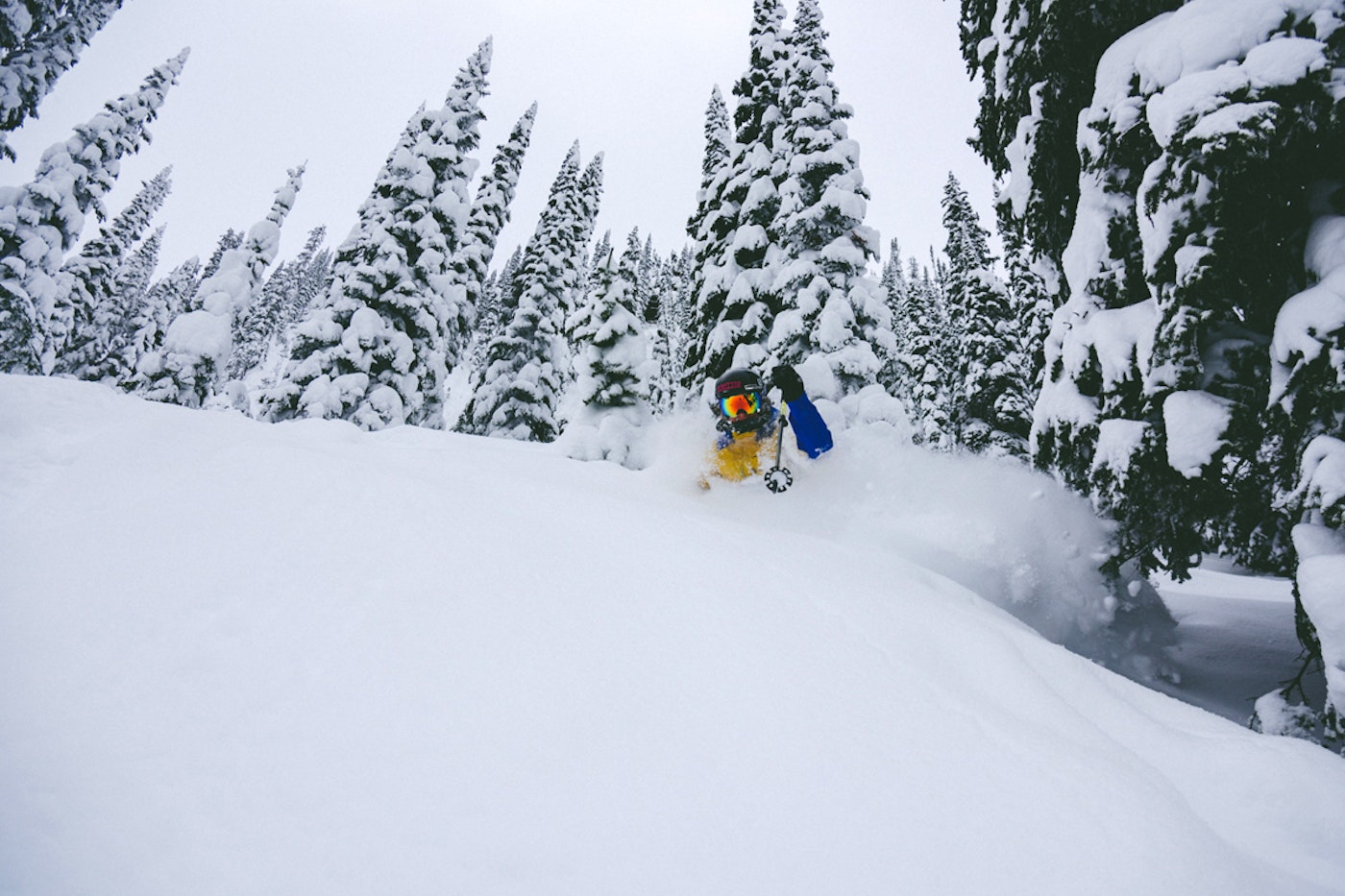
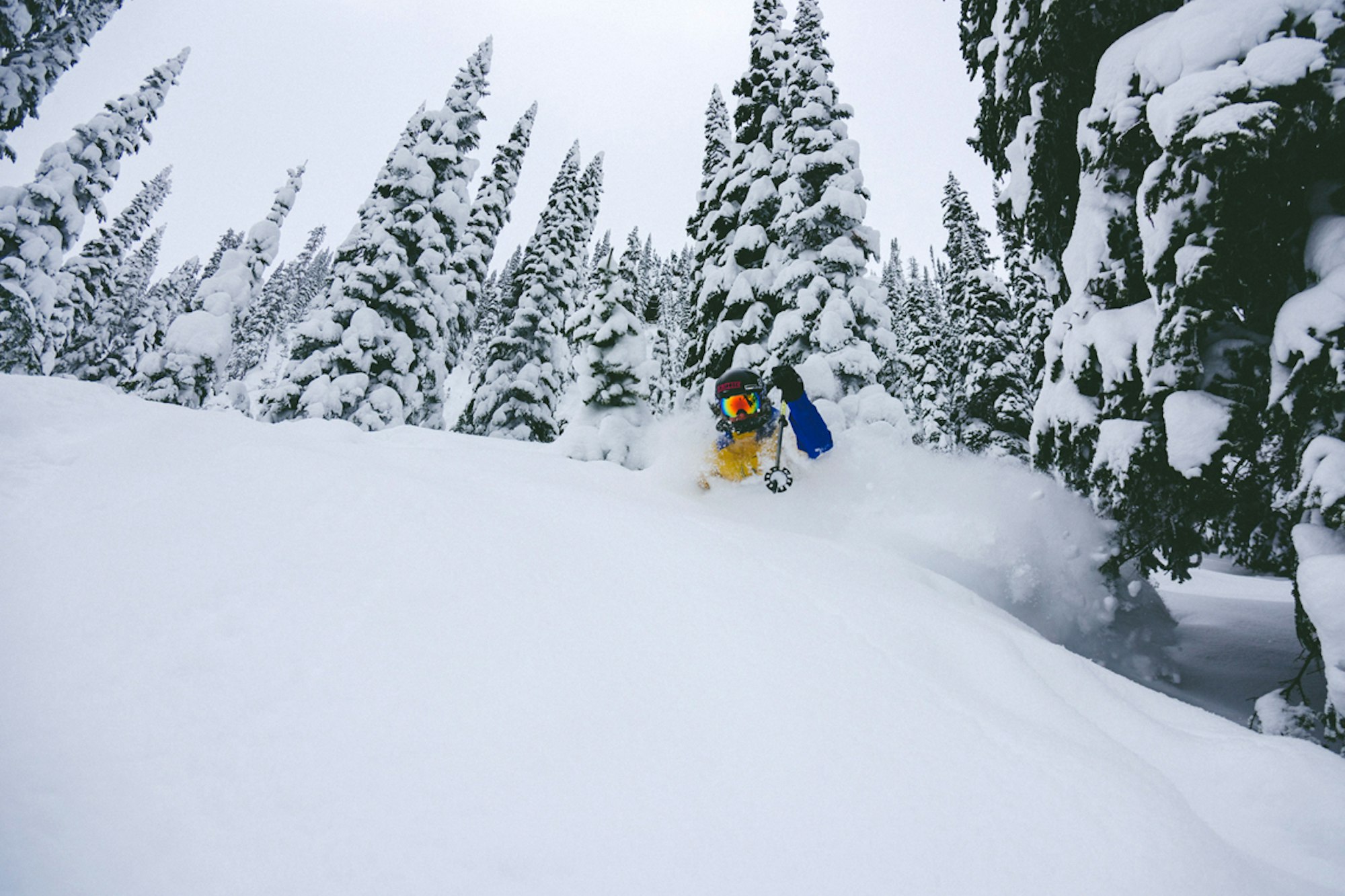
Werner also runs Avalanche Canada’s Youth Program, which delivers avalanche education and winter awareness skills to K-12 students all over B.C. and Alberta. The program reached over 8,000 youth in the 2016-17 winter season alone. Where Werner could point to few female forecasters as she was growing up, she’s instilling the normalcy of it in thousands of Canadian youth across two provinces.
Being the solitary female on a full forecasting team isn’t an anomaly; it’s consistent with other major forecasting programs across the West. All three primary members of the Bridger Teton Avalanche Center are men, one woman graces the four-person team at Jackson Hole Resort, and the Utah Avalanche Center in the Wasatch is comprised of one woman and six men. But with mentors on the scene like Werner and Danyelle Magnan, the first woman on track to become a full forecaster with the iconic (and decidedly badass) Rogers Pass avalanche control program, it’s possible to imagine those stats might shift in the future.
“It’s really important to acknowledge that the phenomenon of so many women in the backcountry in this region, both professionally and recreationally, is also due to the attitude from the guys skiing here, as well,” Magnan says. “When I think of the male mentors I’ve had along the way, they were really supportive; I’ve always felt like I was part of a group contributing to decisions.”
There’s one more piece of the backcountry puzzle that’s unique to Revelstoke’s thriving female ski community, and it’s less obvious than ski skills or avalanche knowledge: getting women comfortable with sled-accessed ski touring. While it’s often overlooked as a factor in participation in this human-powered sport, it’s increasingly normal for a sled to be a major component of the touring arsenal for mountain travel. But female sledders are an even rarer breed than female backcountry skiers, let alone a combination of the two. Revelstoke local Nadine Overwater is playing a central role in changing that by filling this uncommon but critical niche as a mentor.
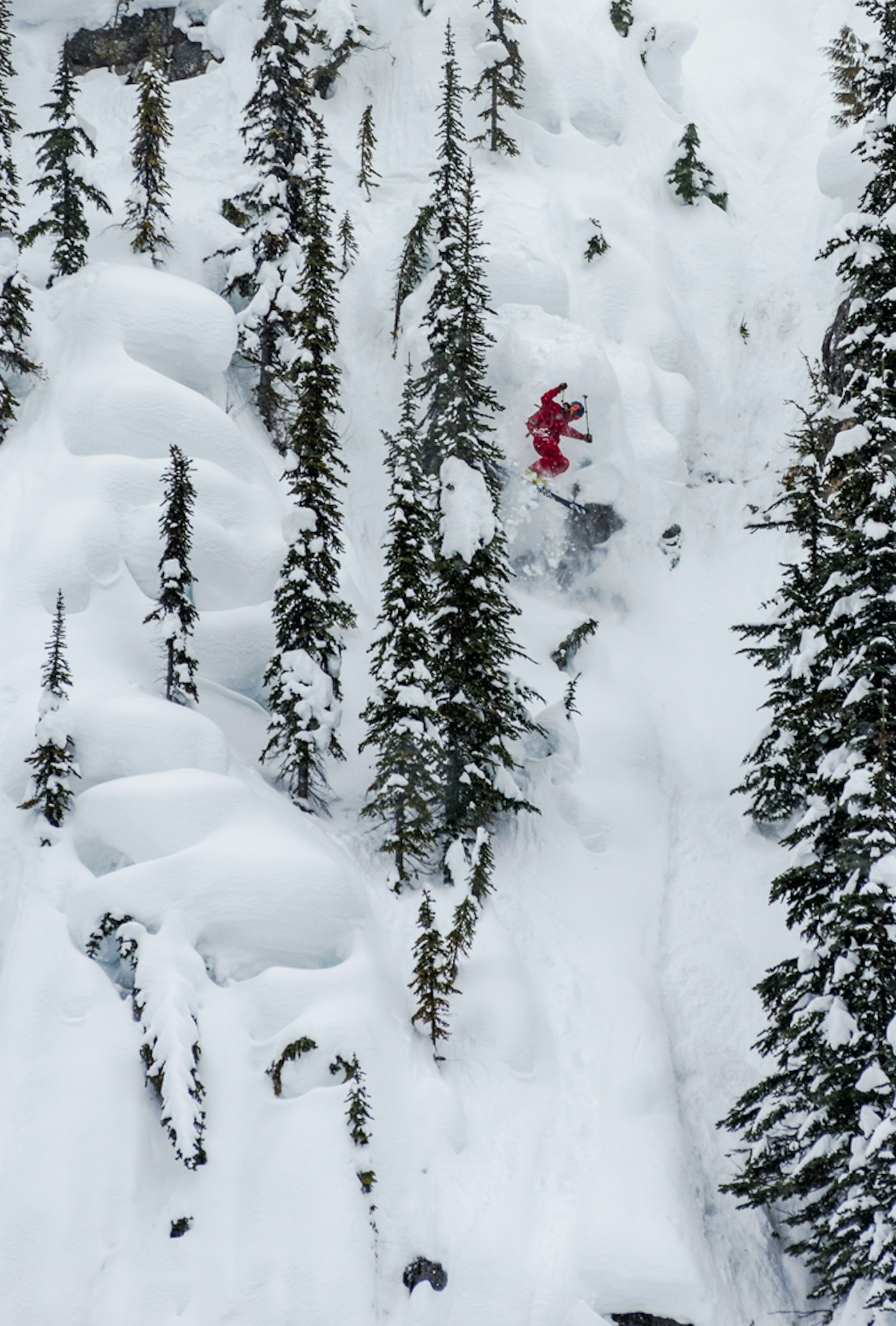
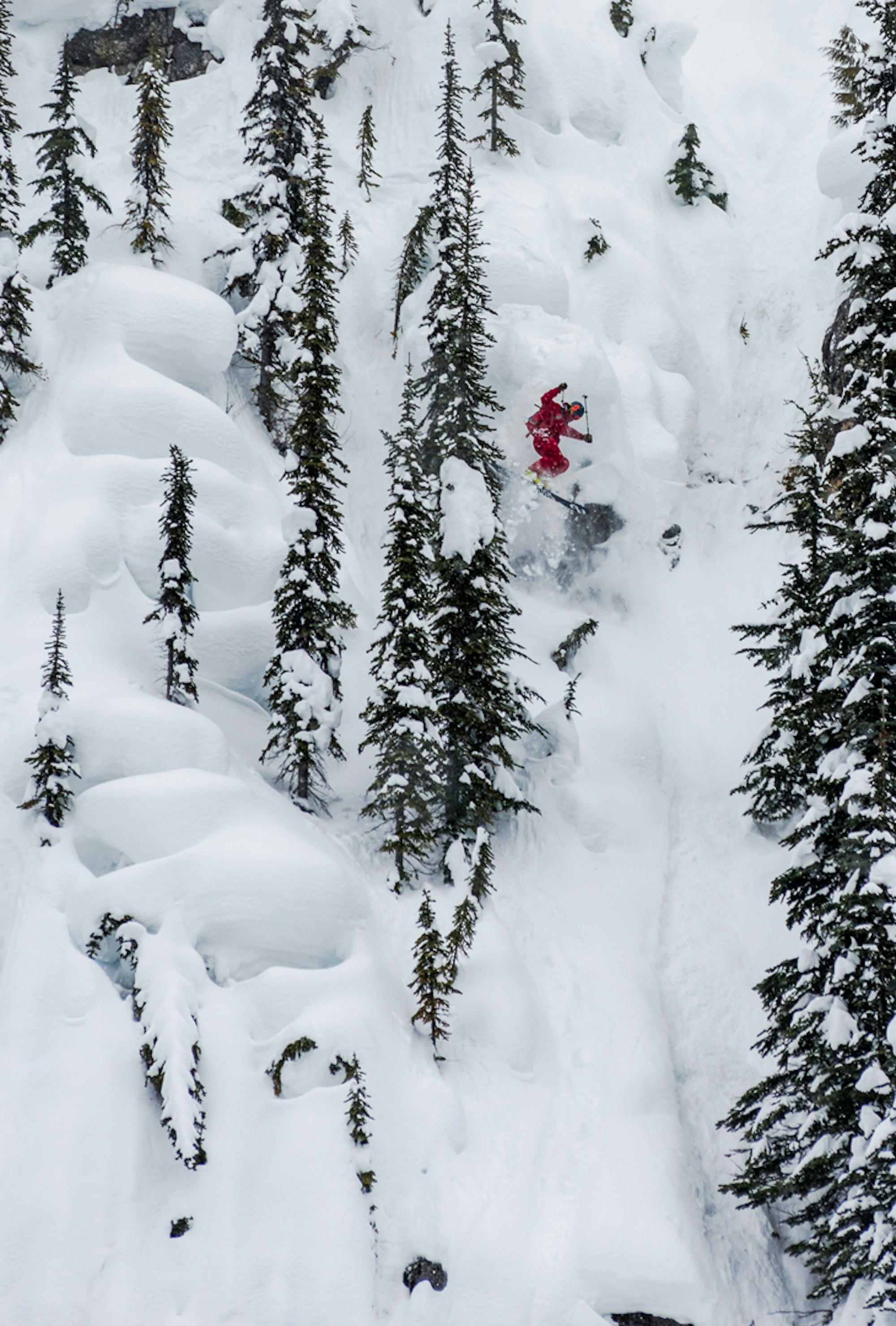
Overwater got her start as one of the first female snowmobile guides in B.C.—possibly the first, but given that sled guiding is somewhat of a renegade industry, there are no records to cement that pioneering distinction. She’s now sponsored by the likes of 509 and Motorfist, which have spotlighted her tricks and jumps in their films, and she’s a backcountry sled safety ambassador for Avalanche Canada.
In 2012, in response to increasing requests from women wanting to learn to manage snowmobiles, Overwater founded La Niña Sled Camp, which offers courses designed to teach women to hold their own in the mountains. Five years later, her camps are selling out consistently and she’s training new coaches to keep up with demand.
“A lot of women come to La Niña to learn to use sleds for touring—it’s what gets them into sledding in the first place,” says Overwater. “I couldn’t put a percentage on it, but they’re coming to better their skills for ski access.” Where it used to be that seeing a woman on a sled in the mountains around Revelstoke was a rare event, it’s become normal to see groups of women out shredding thanks to Overwater’s mentorship.
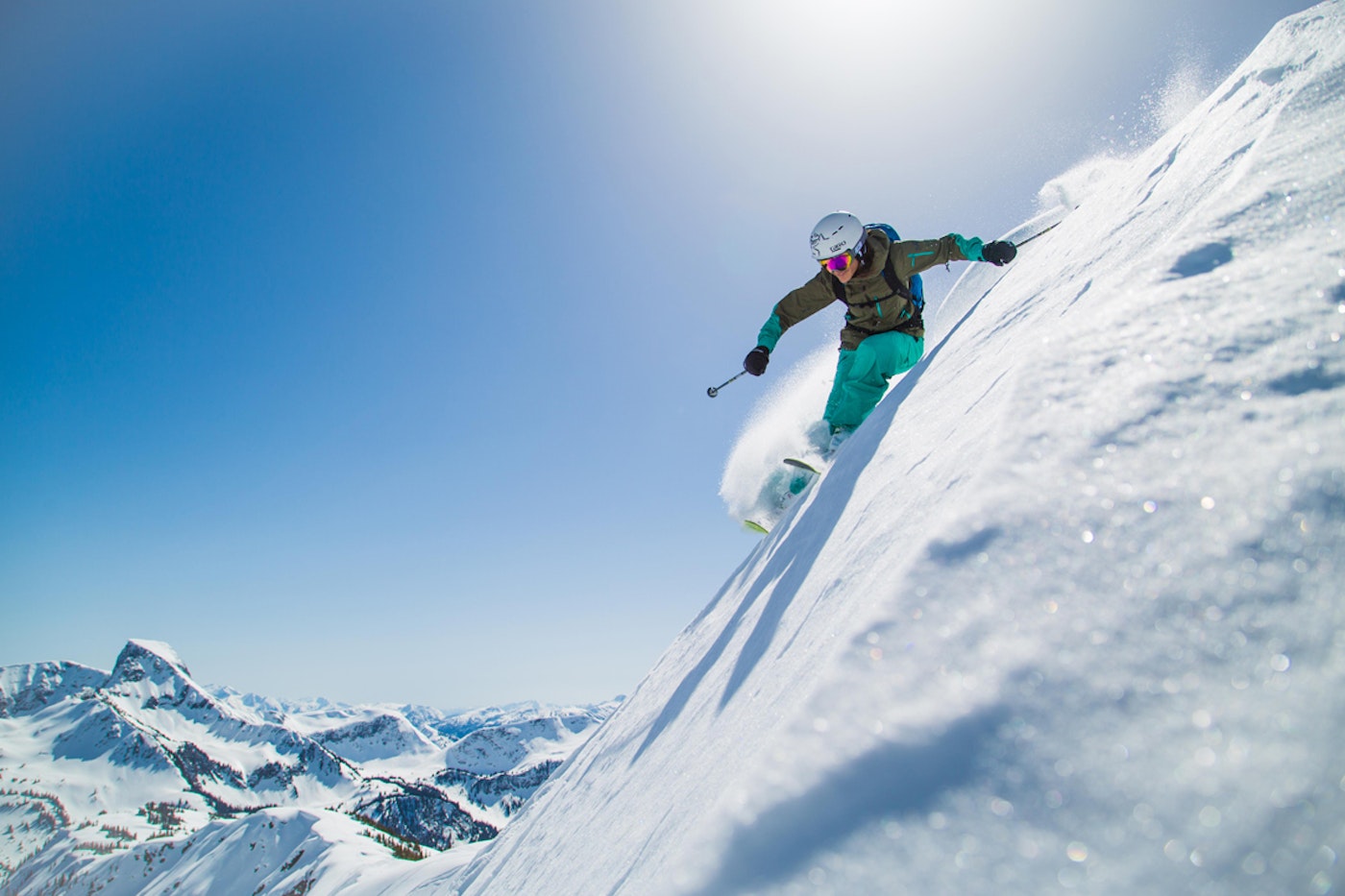
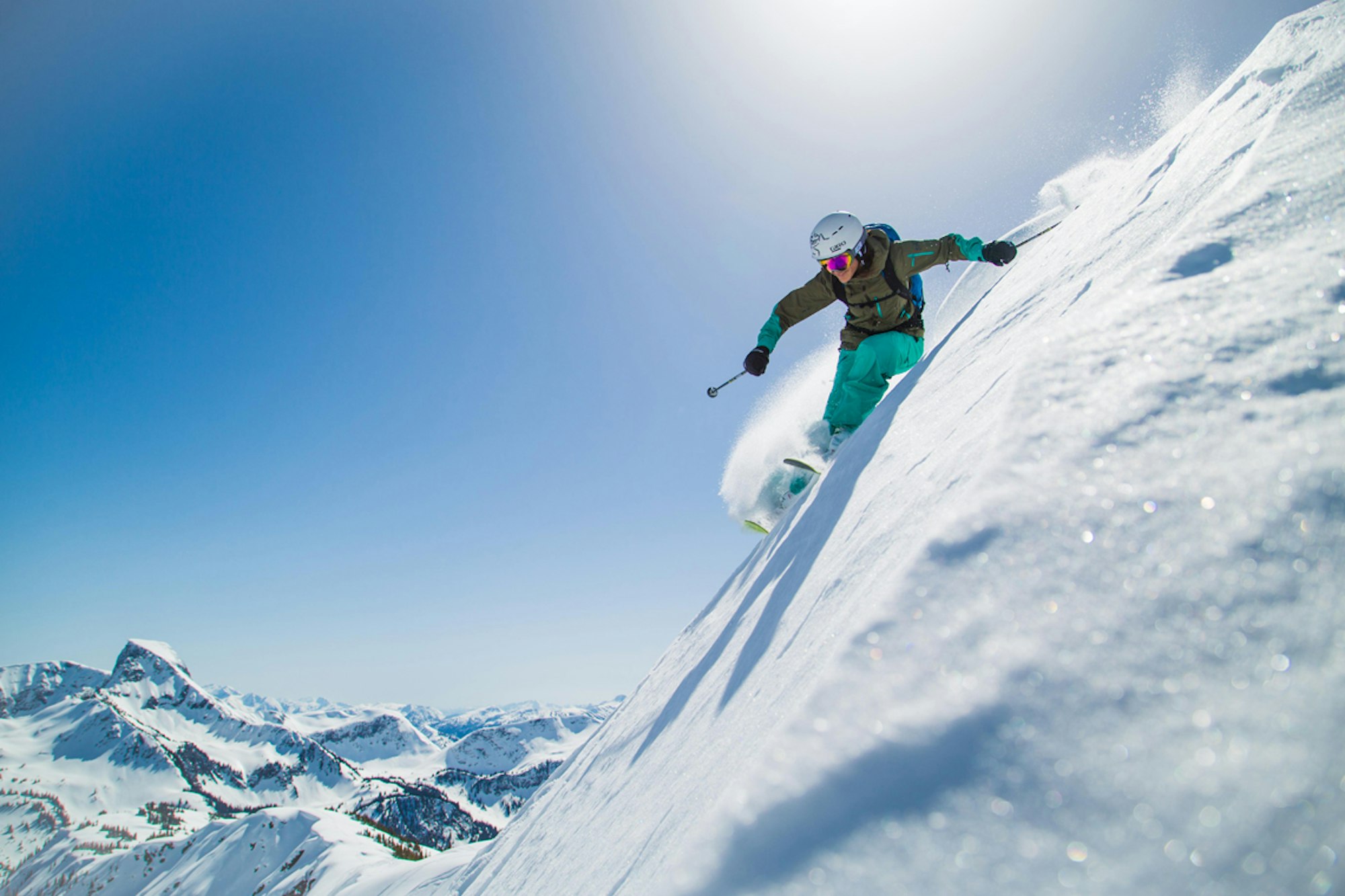
“A few of us hired Nadine a couple winters ago to coach us on sleds, and she was such a great teacher,” says Lusti. “It was amazing to have such a high level of instructor—and have her be a local female.”
Overwater’s take on teaching is no exception to the shine theory model. “All the girls coming to La Niña are mentors to me as well in terms of being strong and capable. We bring out the best in each other. The bottom line is that able-bodied girls breed able-bodied girls. Confidence breeds confidence.”
“I’ve actually heard a few guys wondering why there aren’t any men’s-only programs,” laughs Werner, as we tick off the town’s women-specific programs on our fingers. “The thing is, the backcountry ski scene has always been men’s only.”
Not for long, if the experiment in Revelstoke catches on outside the towering borders of the Selkirks and Monashees. Something tells me it will, sooner rather than later.

